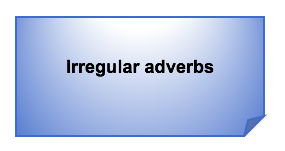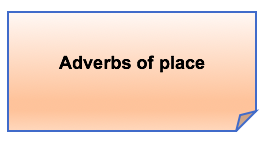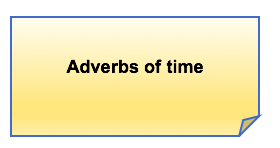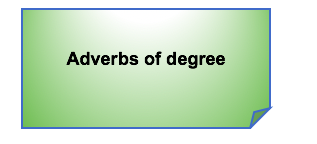ADVERBS
Adverbs are words that modify, change or qualify words such as a verb, adjective, determiner, clause, preposition, or sentence. There are different types of adverbs. They can express manner, place, time, frequency, degree, level of certainty.

In this section we will look at the following categories of adverbs:
- Adverbs of manner: slowly, carefully, nervously
- Irregular adverbs: well, fast
- Adverbs of place: everywhere, outside, inside, nowhere
- Adverbs of time: today, yesterday, tomorrow, sometimes, often, never, last year, now, soon, immediately
- Adverbs of degree: almost, very, extremely, quite, hardly, a bit, really
- Commenting adverbs: personally, clearly, honestly, surprisingly, absolutely, certainly, probably, definitely, perhaps
Teachers can use the video Adverbs in English-Learn all about English Adverbs to explain what adverbs do, what the difference is between adjectives and adverbs, and how to use adverbs in English.
The following video looks at exceptions and common mistakes. It includes a quiz that students can do to test their understanding.






